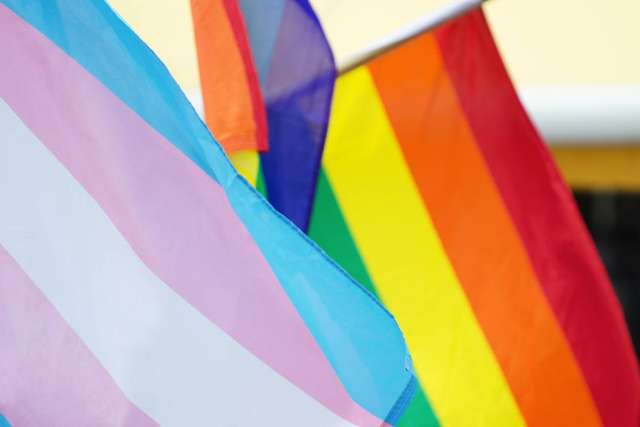March 31 marks the 12th annual International Transgender Day of Visibility (TDoV), a date to recognize the strength and contributions of transgender and gender non-conforming people, and to raise awareness of societal and health challenges faced by this community.
International Transgender Day of Visibility is “a celebration that this community exists – a resilient, vibrant and beautiful community,” says Chris Mann, program manager for the Gender Health Program at UCLA.
“A lot of people are under the assumption that they don't know anybody who is trans, but I think what the statistics show are that they're everywhere,” Mann says. “Transgender and gender diverse people have always been a part of our societies and cultures globally.
“We people who are cisgender (a person whose gender identity matches their assigned sex at birth) can do a lot of work to better the lives of people who are trans.”
TDoV by Rachel Crandall-Crocker, a U.S. social worker, psychotherapist and activist, to increase worldwide recognition and celebration of the transgender and non-binary community. The only other well-known transgender awareness day, Transgender Day of Remembrance (Nov. 20), mourns victims of hate crimes and violence. Last year was the for the transgender and non-binary community. At least 37 people were violently killed in 2020, more than any other year since the Human Rights Campaign began tracking these numbers in 2013.
Anti-trans stigma, the denial of rights and opportunities and increased poverty and homelessness foster a culture of bias and discrimination toward this community, Mann says.
“There’s a lot of anti-trans legislation going on in various states regarding access to sports and gender-affirming care for youth,” he says. For LGBTQ+ allies, “now really is the time for action.”
Gender-affirming patient care
The Gender Health Program is working with the David Geffen School of Medicine to incorporate an early authentic clinical experience for 31 first-year medical students on the LGBTQ+ health track.
“Historically, trans and non-binary people have been barred from accessing gender-affirming care. They've been misgendered, abused in health care settings, and made fun of by doctors and nurses,” Mann says. “I think it's incumbent on UCLA to really step up to the plate and promote inclusivity and representation across our health system.”
In addition to the partnership with DGSOM, the Gender Health Program “is leading the charge” to raise awareness of the challenges faced by trans and non-binary people in the health care setting, Mann says.
UCLA Health has a LGBTQ+ champion designation, which show patients which providers demonstrate gender-affirming care. Additionally, a community advisory board within the Gender Health Program, comprised of trans and non-binary people, provides guidance on what the most important issues are to them.
“Instead of creating research about a population, we’re inviting them into the conversation. It is understanding that the people who can talk to us about their experiences are the people who have that lived experience,” Mann says. “We’re giving them a platform to speak to the diversity of the care that they receive, and what's important to them.”
Mann says he would love for UCLA Health to go beyond the community advisory board and become a hub for all trans and non-binary people to receive resources. “Yes, we’re connected to care within our institution, but I would love to be able to better direct folks to other places they can go to for therapy and gender-affirming housing.”
On March 31, the UCLA Health PRIDE Network will host an internal forum to discuss trans and non-binary representation, challenges faced in health care, and discussion on how to engage and spread the word.
“Representation and visibility matters. Period. Full stop. You can't access things that you don't know exist,” Mann says.
To learn more about how you can help out, visit the UCLA Health LGBTQ+ wellness and initiatives ; for more information, visit The Gender Health Program at UCLA.



